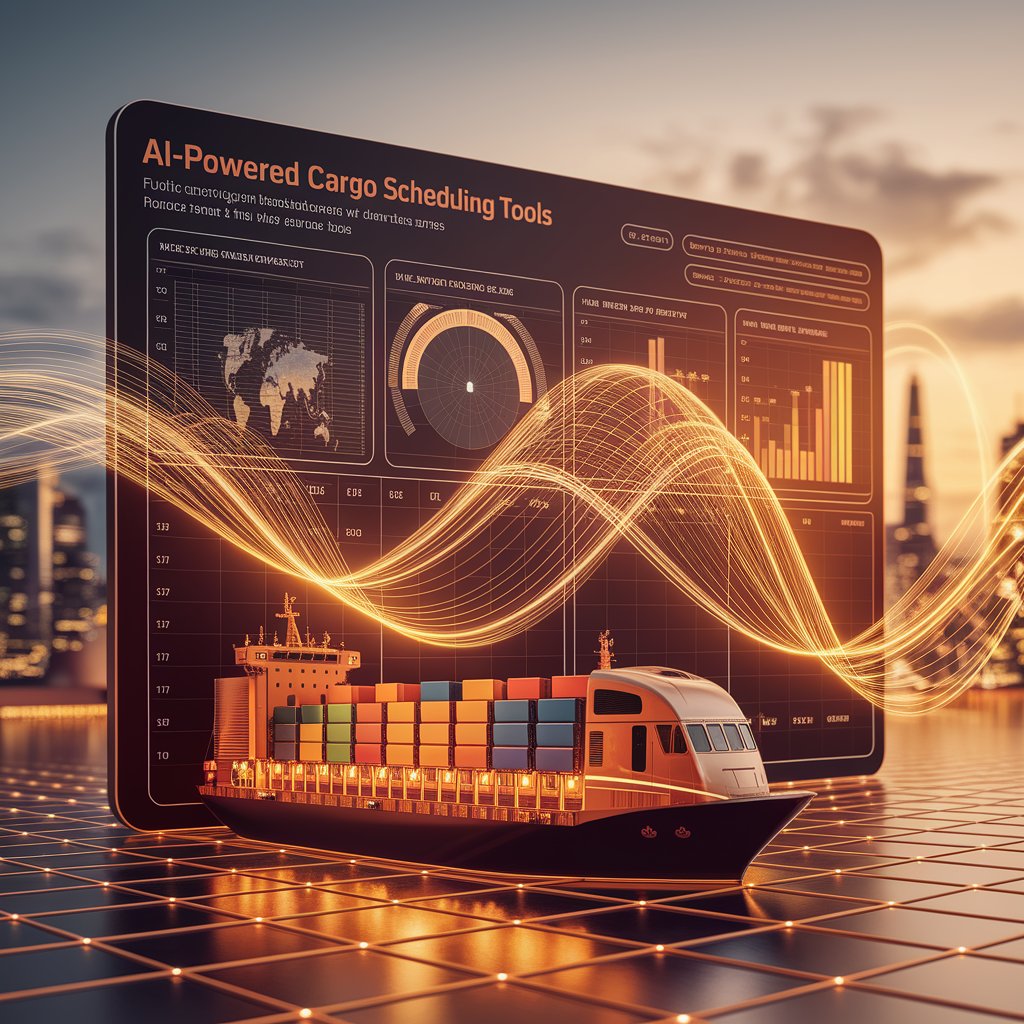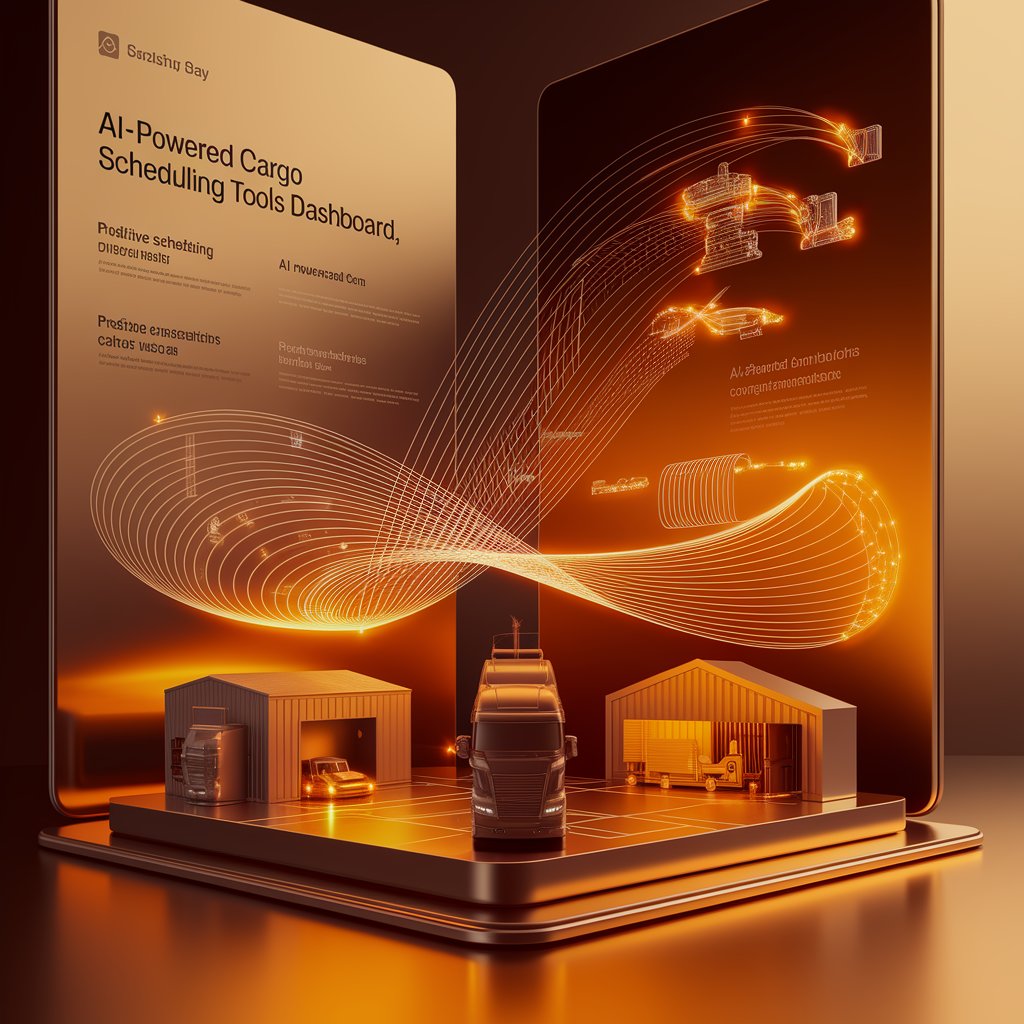AI-Powered Cargo Scheduling Tools: Smarter Planning for Global Logistics

Introduction
That’s why companies are adopting AI-powered cargo scheduling tools. These platforms use artificial intelligence to automate and optimize scheduling decisions, enabling logistics providers and shippers to plan more effectively, adapt to disruptions, and deliver with greater accuracy.
What Are AI-Powered Cargo Scheduling Tools?
AI-powered cargo scheduling tools are software platforms that leverage machine learning, predictive analytics, and real-time data to automate cargo planning across multiple transport modes. They consider variables such as:
- Shipment demand forecasts.
- Carrier capacity and availability.
- Port congestion and traffic conditions.
- Weather patterns and geopolitical risks.
- Warehouse and distribution constraints.
By analyzing these factors, AI creates optimized schedules that balance speed, cost, and service reliability.

Key Features of AI-Powered Cargo Scheduling Tools
- Predictive Scheduling – Anticipates demand and capacity constraints in advance.
- Dynamic Rescheduling – Adjusts in real time to delays, congestion, or disruptions.
- Multi-Modal Coordination – Integrates shipping, trucking, air freight, and rail.
- Smart Resource Allocation – Optimizes fleet, labor, and storage use.
- Real-Time Dashboards – Provide visibility into cargo schedules and KPIs.
- Self-Learning Algorithms – Improve continuously through historical and live data.
Benefits of AI-Powered Cargo Scheduling Tools
- Improved On-Time Delivery – Minimize delays with predictive planning.
- Cost Reduction – Optimize fleet usage and reduce wasted capacity.
- Higher Efficiency – Automate complex scheduling decisions.
- Resilience – Adapt instantly to market disruptions.
- Customer Satisfaction – Provide accurate ETAs and proactive updates.
- Sustainability – Reduce emissions with optimized scheduling and routing.

Real-World Applications
- Freight Forwarders – Plan shipments across carriers and regions more effectively.
- Carriers – Align fleet schedules with predicted demand to maximize revenue.
- E-commerce Logistics – Manage fast-moving, high-volume cargo with minimal delays.
- Cold Chain Providers – Ensure timely scheduling for temperature-sensitive shipments.
- Global Shippers – Coordinate multi-country operations with greater visibility.
Challenges in AI-Powered Cargo Scheduling Tools
- Data Fragmentation – Poor integration between ERP, TMS, and WMS systems.
- High Implementation Costs – AI platforms require upfront investment.
- Cybersecurity Risks – Protecting sensitive cargo and schedule data is crucial.
- Resistance to Change – Teams used to manual methods may hesitate.
- Dependence on Data Quality – Inaccurate or missing data weakens predictions.

Best Practices for Success
- Start with High-Impact Lanes – Apply AI scheduling where delays are most costly.
- Integrate Seamlessly – Connect with ERP, WMS, TMS, and IoT platforms.
- Focus on Data Accuracy – Standardize data to improve predictive models.
- Train Teams & Partners – Build trust in AI-driven scheduling.
- Combine Human Oversight – Use planners alongside AI for maximum results.
- Track ROI – Measure improvements in cost, delivery reliability, and efficiency.
The Future of AI-Powered Cargo Scheduling Tools
- Autonomous Scheduling Engines – AI making decisions without human input.
- Digital Twin Cargo Models – Simulating cargo flows before execution.
- Blockchain Integration – Secure, transparent scheduling across carriers.
- Edge AI for Real-Time Response – Localized adjustments at ports and hubs.
- Sustainability-First Scheduling – AI prioritizing greener transport choices.
Conclusion
AI-powered cargo scheduling tools are transforming how logistics providers and shippers manage complex cargo flows. By combining predictive analytics with real-time data, these tools reduce costs, improve efficiency, and strengthen resilience.
For freight forwarders, carriers, and global shippers, adopting isn’t just about automation—it’s about building smarter, future-ready supply chains.
